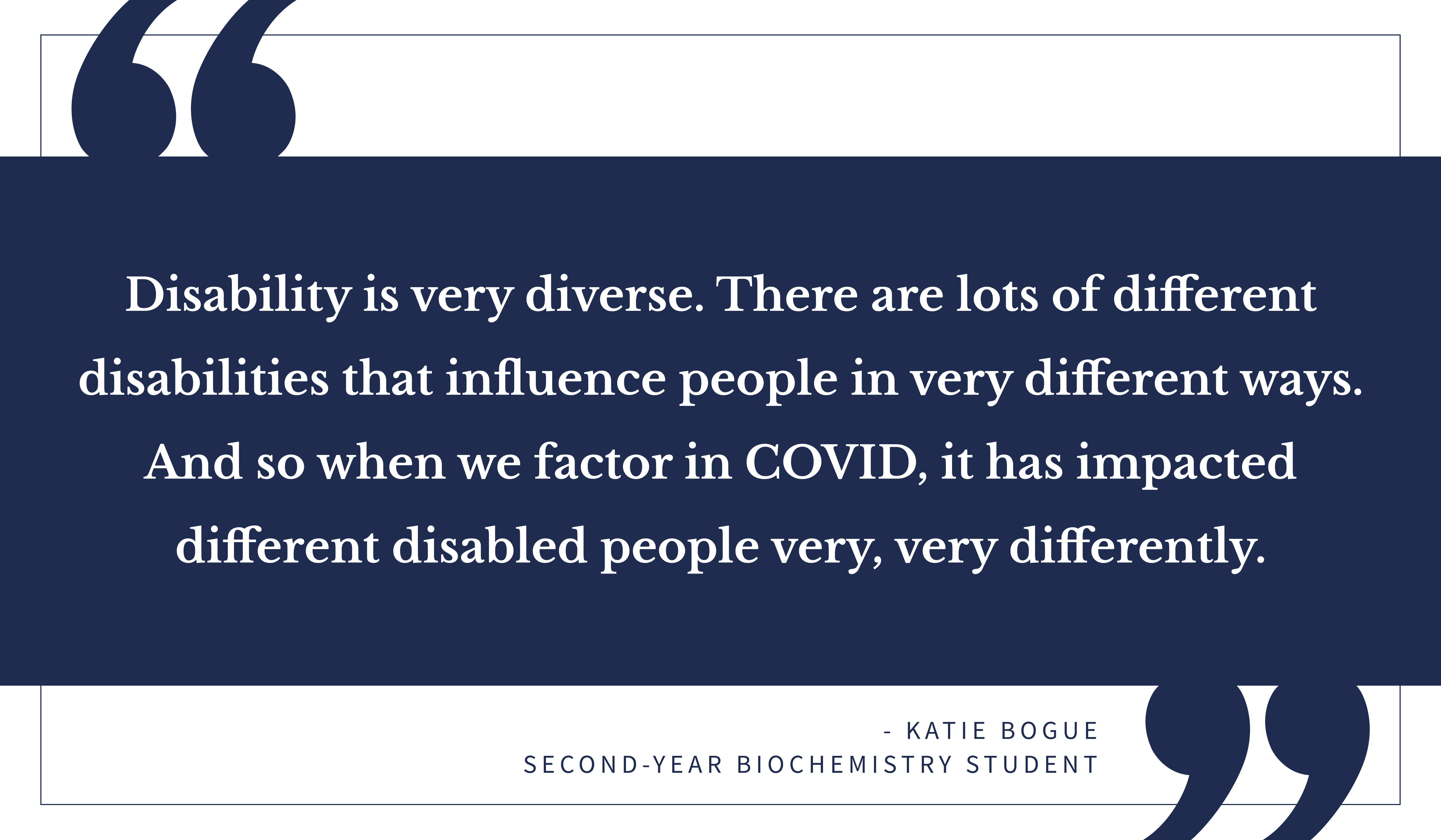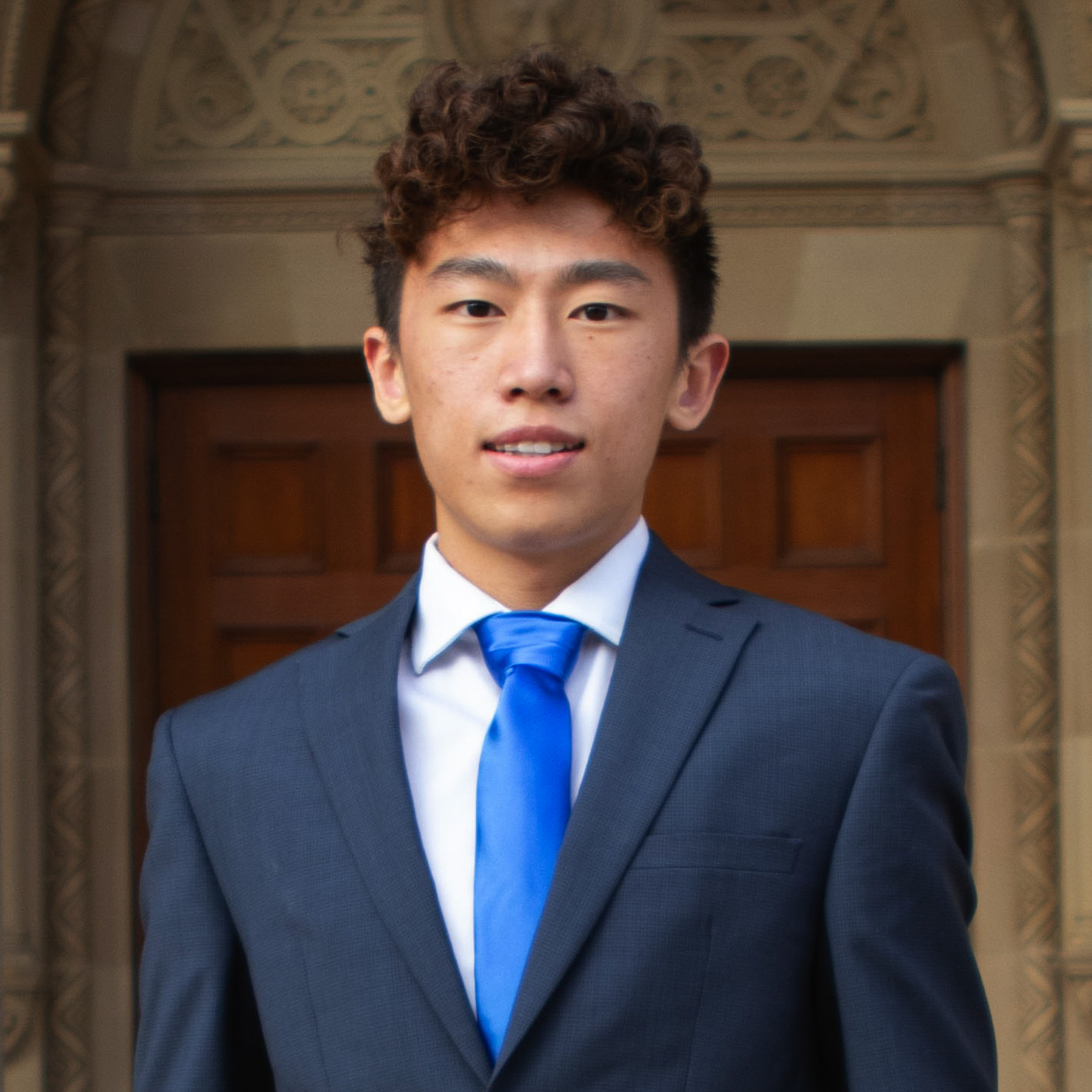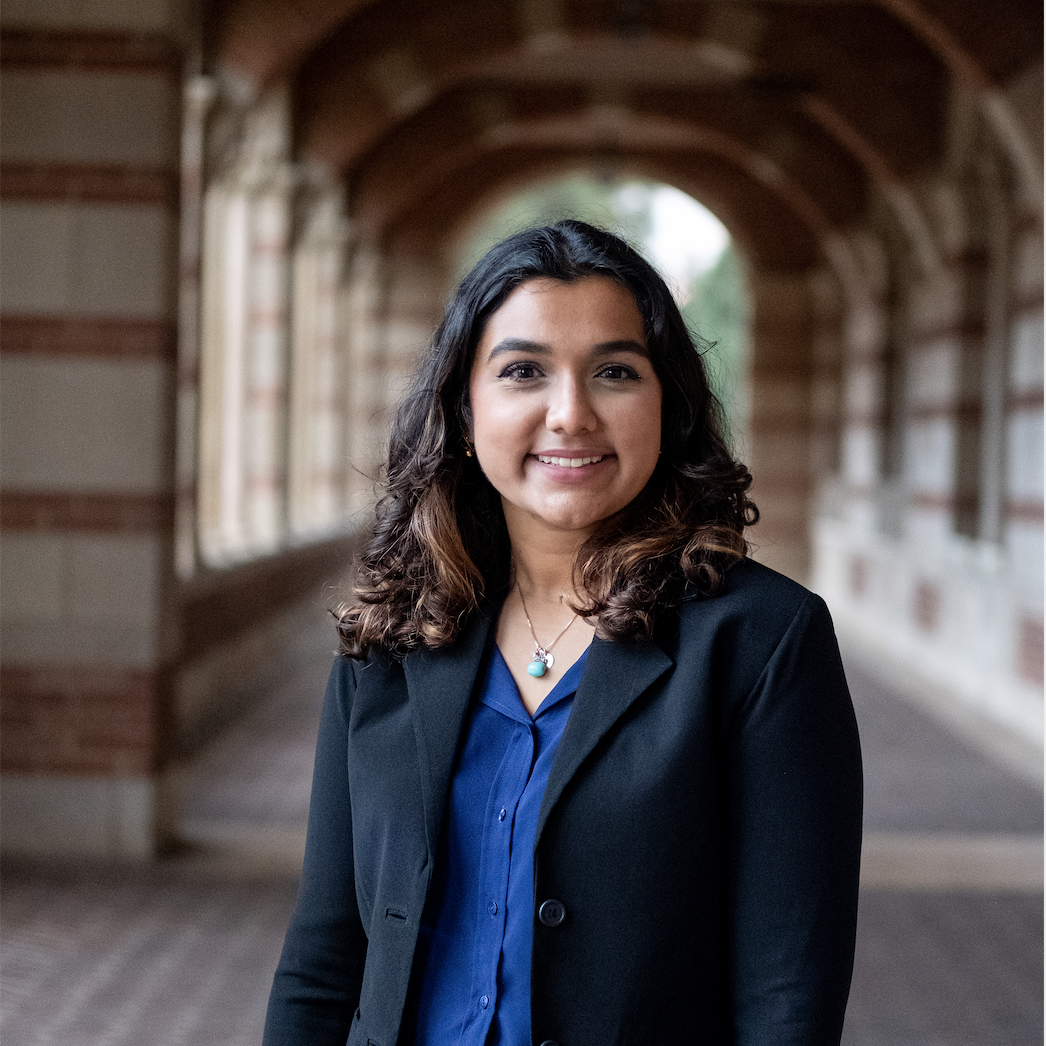Q&A: Disabled Student Union representatives discuss return to campus

Daily Bruin representatives Genesis Qu and Anushka Chakrabarti sat down with UCLA’s Disabled Student Union representatives Quinn O’Connor, Kyle Radwanski-Ortega, Rowan O’Bryan and Katie Bogue to discuss the return to campus and the experiences of students with disabilities during the pandemic.
The following Q&A has been edited for length and clarity.
Daily Bruin: From DSU’s perspective, how has the COVID-19 pandemic impacted the lives of students with disabilities?
Rowan O’Bryan: Well I know there are a lot of disabled people at risk for getting the virus – that’s how it affected me because I’m chronically ill. So I was the one that was at home not socializing for months and months and months while all my friends were. And then, you know I’ve had to wear a mask, but the mask mandates – and it’s great because it stops the spread – but it also covers people’s faces, and I rely on reading lips to understand people. So it’s been such a barrier for me because I cannot communicate well during a pandemic and it feels really isolating. I know that it’s also affected a lot of people’s mental health, including mine – feeling so isolated, feeling like no one cares about the disabled population, that we’re literally disposable and that no one wants to social distance even for the sake of us.
Katie Bogue: It’s hard as well because students with disabilities is a very broad category. Disability is very diverse. There are lots of different disabilities that influence people in very different ways. And so when we factor in COVID, it has impacted different disabled people very, very differently. There’s also a lot of things that have been super positive for disabled students when you talk about online access to things. This has been one of the first school years where I’ve legitimately felt like I’ve been able to access everything to the same ability as all of my peers, which is, is really amazing. I feel like there’s going to be definitely some sort of, like, grieving process when we go back to in-person and that’s no longer the case. And I’ve been a huge advocate for hybrid options going forward because obviously I don’t want to stay at home 24/7, but I also really want to be able to still come to class when I’m not feeling well enough to leave the house.
DB: With UCLA planning for an 80% return to campus in the fall, what are your concerns about the university reopening in the way that it is?
RO: I mean, there are so many concerns. The mask mandate and how that will affect students with hearing loss. Also, like, mask exemptions and how I might be and how people with disabilities who will need the mask exemption will be treated. I’m a little scared about that, especially by teachers – you never know. I’m concerned about everything big in person. I’m concerned about the delta variant and being so close to people. Also, so many kids around you on the Hill throwing parties – we know that everyone’s going to be throwing parties because we’re finally back, and I’m a little scared about that. Really just the hybrid option not being there and like trouble transporting myself to and from class.
Kyle Radwanski-Ortega: There have been some studies or some interest as to how COVID would be transferred in a restroom. To me that’s one of the high points, or the critical areas, that need to be addressed is how our restrooms can be cleaned, how our facilities that are very, very, very high-use are going to be cleaned. So that’s a sort of thing that I’m afraid of for people coming back onto campus.
DB: What are you hopeful about the upcoming school year and the reopening of campus?
Quinn O’Connor: Kyle and I and one other person started the Disabled Student Union in March of 2020. So this organization and its most recent iteration have only existed in a pandemic. I think it’ll be really cool to reimagine what student organizing and activism look like from the disabled student perspective at UCLA when we are reopened. I know that at least next year, I really want to prioritize having hybrid events, hybrid meetings and try to stay as accessible as possible when we return to campus. Building community is one thing, but when it comes to activism, like, being in person can be really effective for change. … I think when it comes to admin at UCLA, having disabled students look at them in the eye rather than, like, being on a Zoom screen, … it’ll be interesting to see the effectiveness of activism.
KB: Just kind of on a more personal note, I’ve only done UCLA from home. Next year will be my first year with anything in person. I am still legitimately excited for that. I’m anxious and upset about some of the ways that it’s going, (but) I want to see people.
DB: What advice do you have for students with disabilities and for students without disabilities, respectively?
KR: Join the DSU, find your tribe, find your group of people that are like you because that’s the only way you’re going to survive. If you don’t find that tribe, it’s gonna suck.
RO: I would also suggest, as a disabled person, to maybe try and see if you can take some disability studies classes through your GE or just try those out because that also really helps me become not insecure in my disability and actually identify as disabled. I know this is hard for people but stand up for yourself when it comes to getting accommodations through the (Center for Accessible Education) and advocate for yourself.
KB: With self-advocacy, depending on what your life experiences have been – coming up to UCLA, there might be some level of internalized ableism where you yourself don’t feel like you deserve certain accommodations or don’t need certain accommodations, so you wouldn’t even think to advocate for them. But just remember there’s no such thing as being disabled enough. If there are things that are limiting your ability to access things, ask, advocate and try to cultivate that identity. Try to get over as much as you possibly can about the weirdness and awkwardness of appearing disabled or being that one disabled kid in your class who needs something.
QO: Listen and educate yourselves on issues, because I wasn’t exposed to person-first language within disability studies until I joined UCLA. Even for disabled students and disabled people, we are never actually exposed to things like disability justice until we’re older. So I think for able-bodied students or students that don’t identify as disabled, viewing disability as an identity rather than a medical ailment changes your perspective on things and changes the way that you can help advocate for disability; just like you could – you would – advocate for queer rights and just like you could advocate for racial justice. Disability needs to be included in your activism. Because disability is so intersectional and so broad, it affects so many different people.
KB: The disabled community welcomes as much support as we possibly can get. If you’re in a class and you see something that’s not right, please say something. At a minimum, what I would ask non-disabled folks to do is to at least look at where any information that they are getting about disability is coming from: is it coming from disabled people or is it coming from the parents of disabled children or any other non-disabled source. And make sure that at a minimum, when you are interacting with disability-related content or thinking about disabled folks, you are centering disabled people and that you are potentially examining any other beliefs or things that you have learned that do not come from disabled folks and are potentially very problematic.




